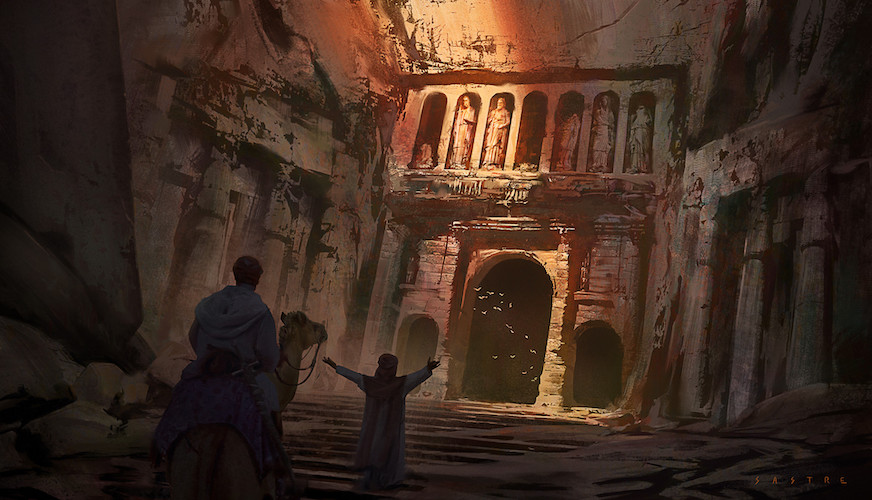Holter
Demography and Population
Holter is settled by many small nomadic tribes and clans, with orcs, gnolls, and humans being the three most populous humanoid species in the region. They are spread thinly across the large country with a larger proportion traveling in the savannah and grasslands.
Gnoll tribes frequently travel across the savannah, while orcish and human tribes favor the grasslands and desert. A small number of farms owned by Xebli settlers make for some of the few stationary settlements in eastern Holter. Many are treated as outsiders not included in the same rights as the Holterian tribes, but one farming settlement has managed to be culturally integrated and is treated as a tribe itself.
Territories
Holter is the name of the vast region of deserts, savannah and grassland in Southern Aisoa, bordering Xeblisau.
While Holter is not a formally defined country, the numerous nomadic tribes and clans that dwell in the area have laid claim to the region as a whole, with it split further between them. The borders are loosely defined and ever shifting. Few other countries have wanted to lay claim to the primarily desert region enough to fight its natives, and Holter has enjoyed free reign over their massive space for many years.
Foreign Relations
Holter maintains some minor treaties with neighboring countries, mostly to do with border definitions. There are some loosely defined laws regarding trade, but generally interactions are defined on a group-by-group basis with foreign countries and the tribes they are interacting with at the time.
Historically there has been border friction, with some tribes wholly ignoring foreign treaties or local laws if they travel through neighboring countries. This is primarily due to a belief that no person can own the land.
Trade & Transport
Holter does not maintain many consistent trade relations with other countries. Internally, Holter's trade is a mix of bartering and gifting - tribes frequently gift each other supplies and cultural artifacts as show of goodwill. They often do so with little expectation of reciprocation, especially when gifting to less powerful tribes.
Outsiders to Holter are often considered greedy, as they never gift gives, and rather than bartering only wish to trade with coin. When tribes do trade with other nations, they primarily sell the sheep and goats they raise, as well as finished jewelry and weapons they have extra. In exchange, they buy a variety of goods that require agriculture or tools that cannot be carried with them.
Education
Holterians primarily carry their stories with them and teach through an oral history. Books are incredibly respected, as are libraries, as a way a tribe can share knowledge with others even after they are gone. Many tribes store their most important stories in valuable tomes they carry with them.
Though conflicts between tribes and their controlled territory can be thorough and violent, libraries and books are rarely ever destroyed even by hated rivals. The stories of other tribes are told as freely as ones own tribe.
Desert libraries are common destinations for roaming tribes - even if nothing else is accomplished, the tribe will become stronger through learning.
Infrastructure
There are few buildings in Holter. Those that do exist are usually solitary structures with some cultural or spiritual significance to whoever built them, and are generally treated as places of respect and wonder. Despite this, the nomadic nature of the people of Holter means they are usually abandoned as well.
Architecture generally foregoes living spaces, instead assuming that any inhabitants will have brought their own supplies and temporary shelters.
Type
Geopolitical, Country
Demonym
Holtan
Government System
Tribalism
Power Structure
Autonomous area
Economic System
Gift economy
Major Exports
Animals, Leather, Spices
Major Imports
Grain, cloth, alcohol, medicine
Official Languages
Related Ethnicities



